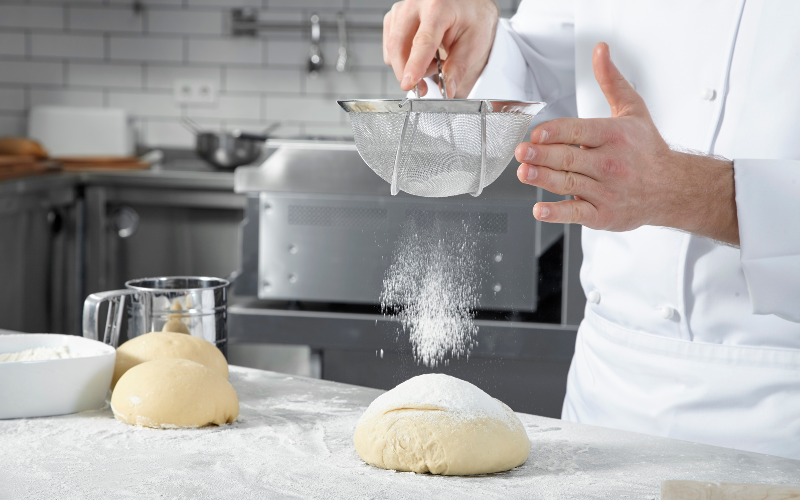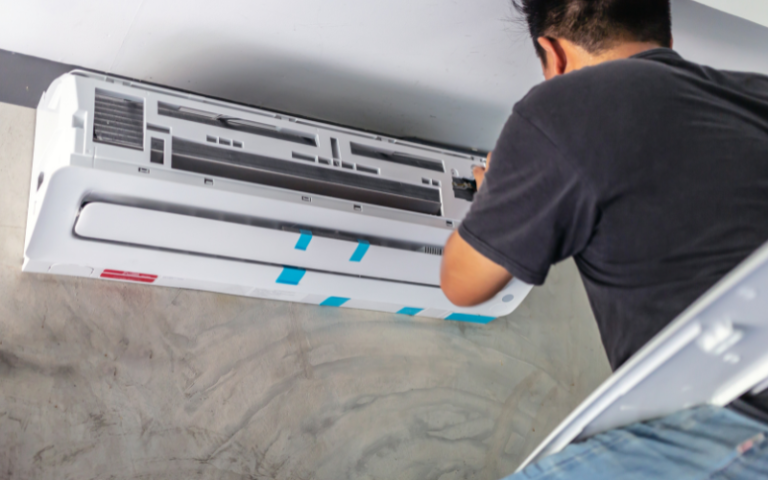The Hidden Risks of Baking in Singapore No One Mentions
Baking is an enjoyable activity that fills homes with delightful aromas and produces delicious treats. However, like any kitchen activity, it comes with its own set of risks, many of which are not immediately obvious. From the dangers lurking in the ingredients to the correct use of equipment, understanding these hidden risks can enhance safety and efficiency, especially for participants in a baking class in Singapore or those enrolled in baking courses for beginners. This listicle explores seven lesser-known risks associated with baking and how to mitigate them.
1. Flour Dust Combustibility
One surprising risk in baking is the combustibility of flour dust. When flour dust becomes airborne in sufficient quantities, such as during vigorous mixing or sifting, it can ignite if exposed to a spark or open flame. This is a rare but potential hazard in busy kitchens, especially during a bustling pizza class where speed and volume might lead to a dusty environment. Ensuring good ventilation and keeping work surfaces clean can significantly reduce this risk.
2. Microbial Growth in Raw Dough
Many people are unaware that eating or handling raw dough can pose health risks due to the presence of pathogens like E. coli in uncooked flour and salmonella in raw eggs. This risk is often highlighted in baking courses for beginners to discourage the tasting of raw mixtures. Always cook products to the right temperature and maintain strict hygiene when handling raw ingredients.
3. Inconsistent Ingredient Quality
The quality of ingredients can vary significantly, affecting the safety and outcome of your baked goods. For instance, expired yeast may not only fail to rise but could also harbour harmful microorganisms. Participants in a baking course in Singapore are taught to check the freshness of ingredients before use and learn how to store them properly to maintain their quality and safety.
4. Allergen Contamination
Cross-contamination with allergens is a critical concern in baking. Ingredients like nuts, gluten, and dairy can pose severe risks to individuals with allergies. In any baking class, it is essential to use separate utensils and equipment for allergenic ingredients or thoroughly clean them between uses to prevent cross-contamination.
5. Burns and Cuts
The risk of burns and cuts is high in baking due to the use of hot ovens, stoves, and sharp implements like knives and dough cutters. Proper training, such as that provided in baking courses for beginners, includes safety practices like using oven mitts, handling sharp tools correctly, and never leaving heated appliances unattended.
6. Chemical Leaveners Misuse
Improper use of chemical leaveners such as baking soda or baking powder can lead not only to poor results but also to the consumption of excessive sodium or other chemicals. It’s crucial to measure these ingredients precisely and understand their roles. Misunderstanding can lead to not only failed recipes but also health issues due to imbalances in ingredient properties, a common focus in comprehensive baking courses.
7. Over-reliance on Electronic Devices
While technology has made its way into the kitchen through devices like electronic scales and timers, over-reliance on these tools can detract from developing essential baking skills. For instance, the ability to judge dough readiness by touch or to estimate the doneness of bread by its smell and sound is invaluable. Learning these skills in a hands-on pizza class or similar setting can enhance a baker’s intuition and reduce dependency on gadgets.
Conclusion
While baking is undoubtedly a rewarding and enjoyable activity, being aware of these hidden risks helps bakers of all levels—from novices in a baking class in Singapore to seasoned professionals—stay safe and produce better results. Awareness and proper training can turn potential hazards into simple challenges to be managed, making the baking process both safer and more enjoyable.
Join Bespoke Bread’s baking classes today to learn safe and effective baking practices that ensure your culinary creations are always perfect.





